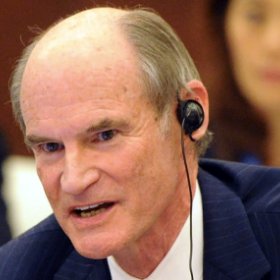
The Bear and the Eagle, Seen Through the Cyber Lens
In RealClearWorld, EWI cyberspace program chief Bruce McConnell writes that improving the United States and Russia need to begin a two-way conversation about what we want the situation to look like in five years and how we might get there.
The bilateral relationship between the United States and Russia is at its most dangerous point since the Cuban missile crisis. In some ways it is worse. As a Russian colleague recently observed, the management of Cold War tension was mathematical; today it is emotional. Further cemented by the chemical attack in Syria and by new sanctions, the hard lines both sides have drawn bode poorly for progress in reducing tensions. The immediate task is to keep communication channels open to avoid missteps or miscalculations that could lead to inadvertent or unnecessary escalation of conflict between the two nuclear powers.
Cyber is both an element of and hostage to the larger set of issues affecting U.S.-Russia relations. White House officials have made it clear that they won’t talk to the Russians about cyber until there is some reduction in Russian-based (or directed) hostile activity. However, Russian officials say they are neither aware of nor responsible for any alleged cyberattacks, emphasizing that these would in any case be the work of independent parties.
Photo: "html php java source code" (Public Domain) by markus spiske

